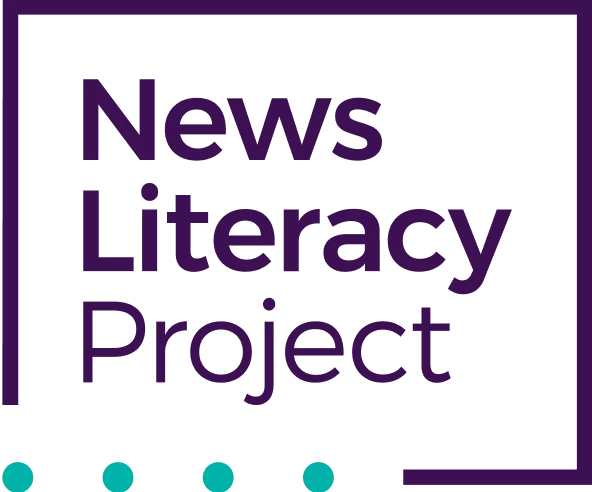Upon Reflection: Combating America’s alternative realities before it is too late
Note: This column is a periodic series of personal reflections on journalism, news literacy, education and related topics by NLP’s founder and CEO, Alan C. Miller.
Donald Trump’s presidency began with the concept of alternative facts. It is ending with a country divided by alternative realities.
In the intervening years, the fault lines in America have deepened. They are defined by demographics and geography and partisanship. But they are driven by all of the information, including news, that we consume, share and act on.
When I was a reporter, journalists would bring out the old phrase “Facts are stubborn things” as an ironic way of complaining when an inconvenient fact proved to be the undoing of what would otherwise have been a good story. Today, it is opinions that are often impervious to facts.
For many, trust in institutions, including the media, has ruptured. Facts are no longer convincing; feelings hold sway, and conspiratorial thinking has moved into the mainstream. But don’t blame Donald Trump for this. While he has exploited and accelerated this erosion of fact-based reality, it didn’t start with him.
Nor is this tendency to disregard evidence and expertise a purely partisan exercise. The anti-vaxxer movement includes many progressives; in fact, Robert F. Kennedy Jr. is one of its most prominent leaders.
Yet there is no doubt that the inclination to disregard credible sources and verifiable information in favor of unproven assertion and surreal supposition has intensified since Trump became president — aided by the right-wing media echo chamber and the cauldron of toxic misinformation on social media. Consider these three stunning developments this year alone:
- Even as a global pandemic has resulted in almost 14 million cases of COVID-19 and more than 273,000 deaths in the United States alone, many people still believe that the disease is a hoax or has been exaggerated for nefarious purposes. A nurse in South Dakota recently told CNN that some of her patients, even as they got sicker and sicker, remained convinced that the virus was fake. Their dying words, she said, were, “This can’t be happening. It’s not real.”
- The conspiratorial delusion known as QAnon holds that a cabal of Satan-worshipping pedophiles — including prominent celebrities and Democratic politicians — are secretly running the government and engaging in child sex trafficking, and that Donald Trump is the only person who can stop them. Polls show that a growing number of Americans are open to this dangerous apocalyptic thinking, and two QAnon supporters— Georgia Republican Marjorie Taylor Greene and Colorado Republican Lauren Boebert — will be sworn in next month as members of the U.S. House of Representatives.
- Trump has claimed, without producing any evidence, that he won the presidential election in a landslide and that it was stolen by Joe Biden through widescale fraud. Members of the president’s legal team — including his personal lawyer, Rudy Giuliani — have floated wild and baseless conspiracy theories involving living and dead Venezuelan leaders, a Canadian company that makes electronic voting machines and a computer server in Germany. Dozens of lawsuits filed by the Trump campaign in battleground states have been dismissed; Republican officials in those states have helped oversee recounts and certify the votes. Nevertheless, a Monmouth University survey found that 77% of Trump voters — that’s 56 million Americans — believe that Biden won through fraud.
It is now nearly impossible to avoid the contagion of viral rumors and corrosive mistrust. Before the election, my daughter said she heard that voting by mail “isn’t safe.” My mother said she was skeptical that Trump had really come down with COVID-19. And after the vote, my 6-year-old granddaughter said a classmate told her, “Biden cheated to win the election.” (Lyla said she set him straight.)
It’s time to confront this rising tide before it is too late. We just endured a stress test of democracy, and the guardrails held. But if we do not work together to assure a future founded on facts, we may not be as fortunate next time.
Here are some things that we can — and must — do now:
The news media: Double down on accuracy, verification, transparency and accountability. Call out lies. Avoid false balance. Be tough but fair in covering the Biden administration. Report on Trump as a political, legal and media story, but turn off your notifications of his tweets.
Cable news networks: Dial back on the partisanship and the chatter. Rachet up the reporting.
Social media companies: Consistently and vigorously enforce your community standards against hate speech and other language that incites violence and damages public health and democracy. Boot anyone who routinely violates them off your platform. Improve your algorithms to elevate credible information.
Congress: Sensibly regulate social media companies to ensure that they comply with their standards, protect consumer privacy and do not undermine democracy.
The Biden administration: Bring back the daily press briefings. Make Biden available through periodic news conferences and interviews with a wide range of outlets. Tell the truth. Do not repeat the Obama administration’s mistake of opposing the release of public information and cracking down on government leaks. Restore America’s place in the world as a leading proponent of press freedom.
The education system: Bring back civics lessons — including, as an essential component, teaching students how to separate fact from fiction and determine what information they can trust. Incorporate media literacy and news literacy programs across multiple disciplines in middle schools and high schools nationwide.
The public: Become more mindful about what you read, watch and hear; more skeptical of what you trust; and more responsible with what you share. Consume a varied news diet, and practice good information hygiene. Push back against misinformation, and reach out empathetically to those who are spreading it.
Facts: Hold on tight. You deserve at least a fighting chance. You are too important to fail.
Read more in this series:
- Dec. 17: Journalism’s real ‘fake news’ problem also reflects its accountability
- Nov. 12: “Kind of a miracle,” kind of a mess, and the case for election reform
- Oct. 29: High stakes for calling the election
- Oct. 15: In praise of investigative reporting
- Oct. 1: How to spot and avoid spreading fake news





